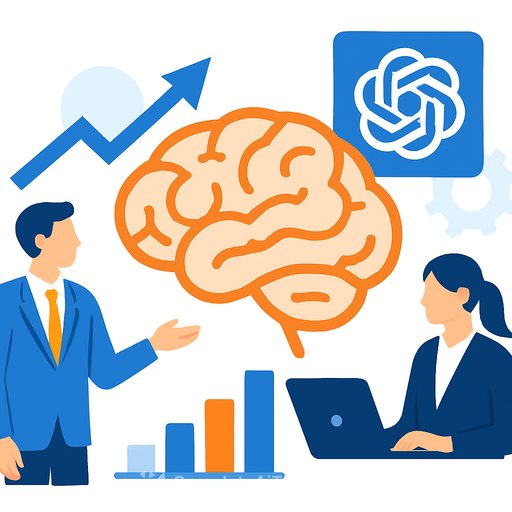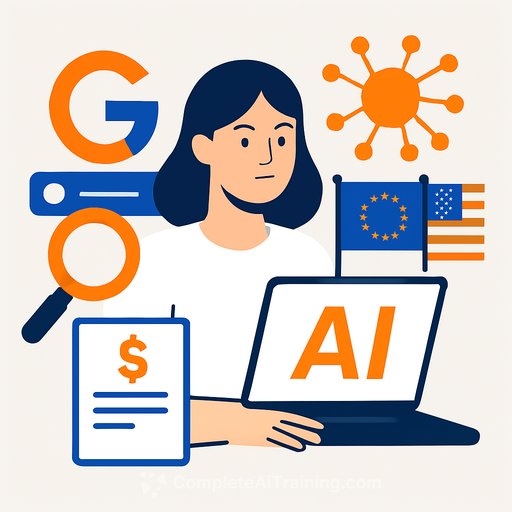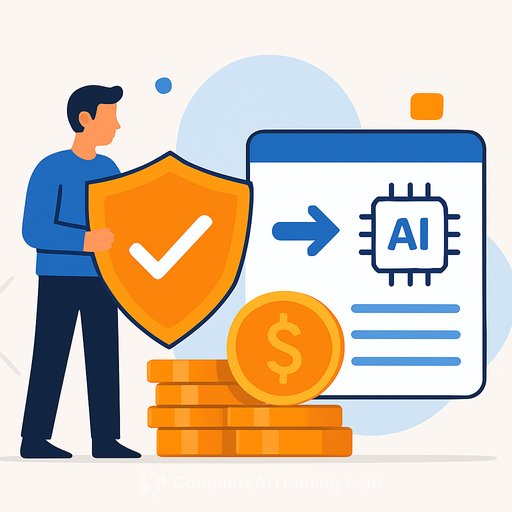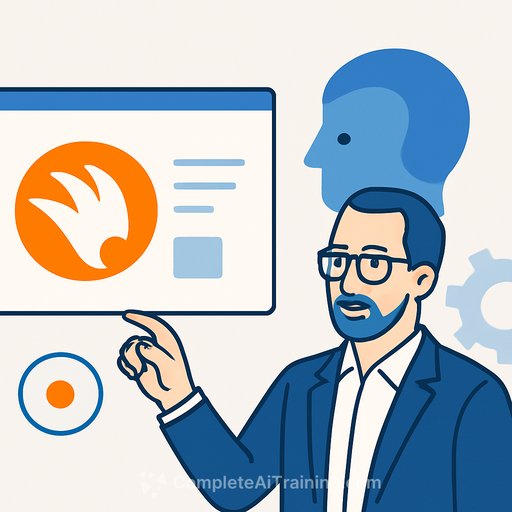SoftBank and OpenAI form SB OAI Japan to deliver "Crystal intelligence" for enterprises
SoftBank Group and OpenAI have launched a new joint venture, SB OAI Japan GK, to bring "Crystal intelligence" to companies across Japan. The offering is a packaged enterprise AI solution built on OpenAI's latest products with local implementation and system integration delivered by SB OAI Japan.
The solution will be marketed exclusively in Japan with availability planned for 2026. SoftBank Corp. will be the first user, applying Crystal intelligence internally to validate use cases and build repeatable playbooks for other enterprises.
What Crystal intelligence means for product development
- Agent-first workflows: AI agents coordinate tasks, follow goals, and hand off across teams-moving beyond chat into real execution.
- Embedded into ops: Expect product, engineering, CX, and revenue teams to plug AI directly into daily workflows rather than building one-off bots.
- Localization and enterprise guardrails: Japanese language quality, data residency, security controls, and integration with existing systems are central.
- Faster discovery-to-delivery loops: From user research synthesis to spec generation, prototyping, QA, and release notes-cycles compress.
Rollout and adoption
SoftBank Corp. will implement Crystal intelligence first, using it across product development and business operations. Results, methods, and operational insights will be shared progressively with other companies via SB OAI Japan.
SoftBank Group has already created about 2.5 million custom GPTs for internal use, laying the groundwork for broader enterprise-scale deployment in 2026.
Why this is credible
"This joint venture with SoftBank is an important step that will accelerate our vision for bringing advanced AI to some of the world's most influential companies, starting with Japan," said OpenAI CEO Sam Altman.
SoftBank Group's Masayoshi Son added that with SB OAI Japan, AI agents will understand goals and collaborate to autonomously carry out tasks-pushing the next stage of adoption across how people work and how businesses are managed.
What product teams should do now
- Identify 3-5 workflows to automate end-to-end (e.g., PRD drafting from research, sprint planning from backlog, incident postmortems).
- Map data sources: product analytics, ticketing, design files, code repos, knowledge bases. Define which need retrieval and write-back.
- Draft an AI policy: model privacy, prompt logging, PII handling, output review, and human-in-the-loop checkpoints.
- Establish evaluation: golden datasets, acceptance criteria, bias checks, hallucination guardrails, and red-team tests.
- Prototype agent handoffs: research agent → spec agent → code agent → test agent → release agent, with audit trails.
- Plan change management: training, role expectations, and KPI shifts (from output volume to outcome impact).
- Budget for integration: connectors, vector stores, observability, and service accounts tied to least-privilege access.
- Define success metrics early (see below) and commit to weekly instrumentation reviews.
Architecture notes for Crystal intelligence era
- Data: Document stores + product analytics + ticketing as retrieval sources; clear retention and deletion policies.
- Controls: SSO, SCIM, role-based permissions, encrypted logs, output watermarking where feasible.
- Observability: Prompt/version tracking, latency and token costs, agent path visualization, failure replay.
- Human oversight: Approval steps on production-impacting actions (deployments, pricing changes, comms).
- Localization: Japanese-first prompts, domain glossaries, evaluation sets reflecting local use cases and tone.
Compliance and privacy
- APPI considerations: minimize personal data, define processing purposes, and document cross-border flows.
- PII redaction on ingestion, strict environment separation for dev/test/prod, and incident playbooks.
- Vendor reviews: data residency options, training data boundaries, and third-party subprocessor lists.
Read more on Japan's privacy law (APPI) from the Personal Information Protection Commission: ppc.go.jp/en.
KPIs to track from day one
- Cycle time: idea → spec → release
- Agent task success rate and intervention rate
- Quality: spec completeness, defect leakage, rollback rate
- Support impact: ticket deflection, first-response accuracy
- Cost per action (tokens + infra + integration)
- User sentiment: developer and PM NPS for AI tools
Timeline
- Now: Internal SoftBank deployment as first user; playbooks and patterns are being formed.
- 2026: Crystal intelligence becomes available in Japan via SB OAI Japan.
Where to learn more
- OpenAI enterprise offerings: openai.com/enterprise
- SoftBank Group: group.softbank/en
Helpful resources
- Building and managing custom GPTs for product teams: Complete AI Training - Custom GPTs
Bottom line: Crystal intelligence is set to push agentic workflows and AI-native operations into the core of product development in Japan. Teams that prepare their data, controls, and evaluation stacks now will move faster when the platform lands.
Your membership also unlocks:





